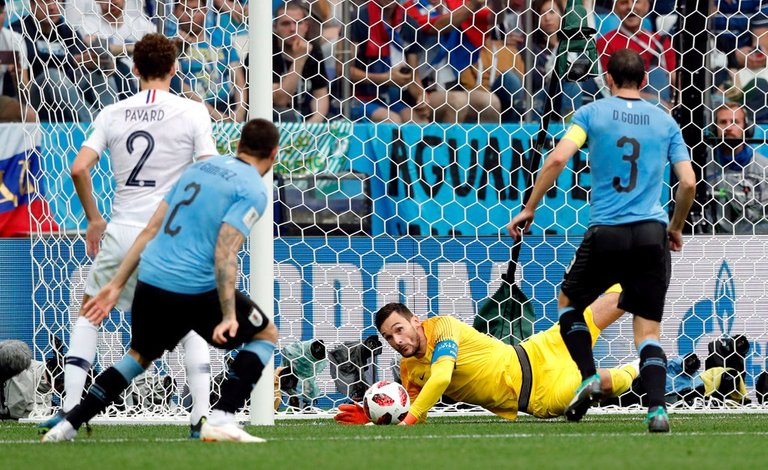
Soccer is excellent in light of the fact that soccer is hard. Most mainstream sports falsely improve the human body. Soccer reduces it. Rather than giving players a bat, a racket, defensive covering, or cushioned gloves—devices that enable players to achieve more remote, restore a ball speedier, retain harder hits, or hit harder themselves—soccer takes away players' hands. It precludes the utilization of the nimblest piece of the body, and afterward it says, "Be deft." Besides, on the grounds that the activity in soccer so only from time to time stops, in light of the fact that there are so couple of minutes when play resets to a recognizable beginning stage, soccer expects players to work inside the confinements it forces for any longer, and through numerous more situational intricacies, than different games.
Ungainliness and disarray are in this manner natural to the diversion, and this is soccer's unreasonable virtuoso, since what happens when you compel individuals to move a ball around in an exceedingly unnatural manner is that they figure out how to do it. Human creativity and ability figure out how to outsmart the limitations the diversion puts on them. Also, when this occurs at a sufficiently high level—when an objective is scored after an amazing run, or when a progression of one-contact passes influences it to appear just as players are clairvoyantly connected—at that point what comes about is excellence, since innovativeness and elegance have immediately beaten the powers that contradict them.
Obviously, soccer's snapshots of magnificence, even in a World Glass, are uncommon, which is the reason they mean so much when they happen. Whatever remains of the time, soccer just looks as hard as it seems to be. Passes are gravely planned. Shots go screeching ten feet over the objective. The ball descends in a horde of players, every one of whom bounce to head it at the wrong time, so a large portion of the players fall over into a load and the ball goes sputtering off toward a path nobody foreseen. Entire matches pass by along these lines. On Friday, for example, France beat Uruguay 2– 0 out of an immensely foreseen World Glass quarterfinal. It was certifiably not a terrible amusement. A lot was on the line, the groups were firmly coordinated, the players were submitted, the shots were hard, the runs were full scale, and there was yelling and pointing and the ball went flying from each conceivable edge and the clamor from the stands resembled the sound of a spaceship taking off. However, on the grounds that the entire match occurred on the south side of motivation, in light of the fact that the snapshots of brightness that kept nearly emerging never fully did, the play appeared to miss the mark. It resembled the initial two sections of a book whose rushes come in Part 3.
That wouldn't be a feedback, maybe, of any amusement shy of a World Glass quarterfinal highlighting players of the level of Luis Suárez, Paul Pogba, Antoine Griezmann, and Kylian Mbappé. (I wish we could see the amusement played once more, yet with Edinson Cavani, Uruguay's star forward, who was out with calf damage.) And it isn't so much that there weren't energizing minutes. In the forty-fourth moment, with France driving 1– 0, the ball succumbed to Martín Cáceres in the zone after a Uruguay free kick. Cáceres, ascending from a tangle of French safeguards, struck a flying toward the objective. The shot looked unsafe, yet the French goalkeeper, Hugo Lloris, came flying uncontrollably in to thump the ball far from the lower left corner of the objective. The bounce back tumbled to Diego Godín at point clear range. As Lloris mixed off the ground, Godín mis-hit his shot and sent the ball zooming straight not yet decided. It was an eye-extending minute, yet additionally one that felt meaningful of the match itself: an abnormal state scramble in which France turned out scarcely ahead, and another passage in the tremendous file of only great soccer that makes marvelous soccer more dynamite when it shows up.